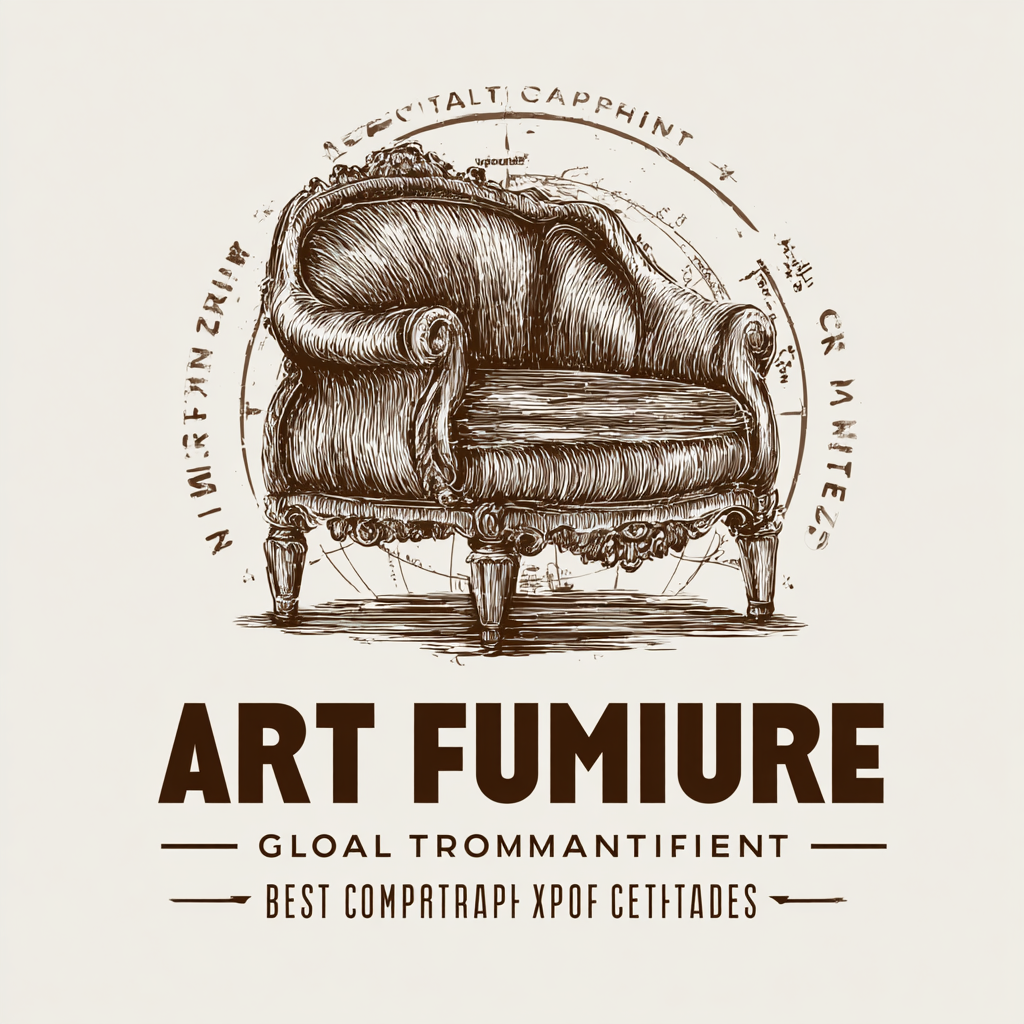Navigating Global Trade Compliance for Best Art Furniture Import and Export Certifications
In the evolving world of global trade, compliance has become paramount, particularly for sectors like Art Furniture, which combines aesthetics with intricate craftsmanship. Recent industry reports indicate that the global furniture market is projected to reach $650 billion by 2025, with a significant portion attributed to art-inspired designs that cater to luxury markets. Navigating the complexities of import and export certifications is critical, as regulations vary widely across borders. According to the International Trade Administration, a staggering 80% of businesses fail to comply with trade regulations, leading to costly penalties and missed market opportunities. This blog will explore effective strategies for ensuring compliance in the import and export of Art Furniture, emphasizing the importance of obtaining the best certifications to foster business growth in an increasingly competitive environment.

Understanding Global Trade Compliance in the Art Furniture Sector
Understanding global trade compliance in the art furniture sector is crucial for businesses looking to navigate the intricate landscape of international trade. As art furniture becomes increasingly sought after across borders, it is essential to grasp the specific regulations that govern its import and export. Each country has distinct customs rules, tariffs, and documentation requirements that must be adhered to, ensuring that trade flows smoothly and legally. Compliance with these regulations not only safeguards a business from hefty fines but also fosters trust with partners and customers.
In addition to understanding customs regulations, companies must also be aware of various certifications that can enhance their credibility in the global market. Certifications such as the Fair Trade and ethical sourcing labels are critical in the art furniture sector, where authenticity and sustainability are often paramount. By investing time in understanding and obtaining these certifications, businesses can position themselves favorably, appealing to a growing demographic of environmentally conscious consumers. Ultimately, a thorough grasp of global trade compliance can lead to expanded markets and increased profitability for those in the art furniture industry.
Key Import and Export Certifications for Art Furniture Businesses
Navigating the intricate landscape of global trade for art furniture requires a keen understanding of the various import and export certifications that ensure compliance and facilitate smooth transactions. For businesses in this niche market, key certifications include the Forest Stewardship Council (FSC) certification, which guarantees that the wood used in furniture production is sourced sustainably. According to a 2022 report by the International Council of Forests, more than 80% of consumers prefer products that meet sustainability standards, making FSC certification not just beneficial but necessary for market appeal.
In addition to FSC, the ISO 9001 certification for quality management systems is crucial for art furniture businesses looking to maintain high standards and improve customer satisfaction. The International Organization for Standardization reports that companies with ISO 9001 certification experience a 20% increase in sales, demonstrating the value of adhering to recognized quality benchmarks.
**Tips:** To effectively navigate certification processes, consider engaging a compliance specialist who understands the specific regulations applicable to your target markets. Additionally, investing in training for your team on certification requirements can lead to quicker compliance and fewer delays in shipments. Establish a network with certified suppliers to facilitate the procurement of materials that meet industry standards, thus enhancing your supply chain's efficiency.
Navigating Global Trade Compliance for Best Art Furniture Import and Export Certifications
| Certification Name | Issuing Authority | Scope of Certification | Applicable Regions | Validity Period |
|---|---|---|---|---|
| ISO 9001 | International Organization for Standardization | Quality Management Systems | Global | 3 years |
| FSC Certification | Forest Stewardship Council | Sustainable Forestry Practices | Global | 5 years |
| CE Marking | European Commission | Health, Safety, and Environmental Protection | European Union | Varies by product |
| CARB Certification | California Air Resources Board | Air Quality Standards for Composite Wood Products | United States | 3 years |
| BIFMA Certification | Business and Institutional Furniture Manufacturers Association | Sustainability and Safety Standards for Furniture | North America | 3 years |
The Impact of Industry Production Standards on Global Trade
In the world of global trade, especially in the art furniture industry, production standards play a crucial role in determining the success of import and export operations. These standards not only dictate the quality and safety of products but also dictate compliance with the legal frameworks that govern international trade. Companies must ensure that their products meet specific certifications, which vary by region, to avoid costly penalties and gain access to diverse markets. For art furniture, this means adhering to regulations such as the International Organization for Standardization (ISO) standards that promote quality and sustainability in production.
Moreover, the impact of industry production standards extends beyond mere compliance. They also drive innovation and competitiveness within the market. By adhering to high-quality production standards, companies can enhance their reputation, build consumer trust, and differentiate their products in a crowded marketplace. As consumers become increasingly aware of ethical and environmental concerns, businesses that prioritize certifications related to sustainability and craftsmanship are likely to stand out. In this interconnected global ecosystem, understanding and navigating these standards becomes essential for art furniture businesses aiming to thrive in trade.
Navigating Global Trade Compliance for Best Art Furniture Import and Export Certifications
Digital Solutions to Streamline Trade Compliance Processes
As global trade evolves, the implementation of digital solutions to streamline trade compliance processes has become increasingly crucial. Industries are witnessing a surge in the application of automation, artificial intelligence, and blockchain technology, enhancing transaction security and reducing costs associated with compliance. Reports indicate that businesses utilizing these technologies can cut compliance-related expenditures by up to 30%, making the case for digital transformation in trade practices ever stronger.
To navigate the complexities of best art furniture import and export certifications, companies should prioritize the integration of e-permitting systems. These systems not only simplify the issuance of permits but also enhance transparency and regulatory compliance. According to insights from recent industry analyses, companies adopting such innovations can experience improved shipment accuracy and reduced delays in their supply chains.
Tips:
- Invest in training staff on new digital tools to maximize their effectiveness in compliance processes.
- Regularly review and update compliance strategies to align with evolving tech trends in the global trade landscape.
- Collaborate with technology partners to ensure seamless integration of digital solutions within your existing frameworks.

Top Reasons to Prioritize Certifications for Art Furniture Imports and Exports
In the competitive world of art furniture imports and exports, prioritizing certifications is crucial. Industry reports indicate that compliance with international standards can enhance the credibility of businesses, leading to a potential 20% increase in customer trust and transaction volumes. Certifications act as a testament to quality and authenticity, which is essential when dealing with art pieces that can greatly vary in value and significance.

To navigate the complexities of global trade compliance, companies should focus on obtaining necessary certifications such as those from the International Organization for Standardization (ISO). These certifications not only ensure adherence to quality management practices but also streamline the shipping process across borders, minimizing delays and reducing costs. According to a study by the Global Trade Association, organizations that prioritize certification processes have reported a 30% reduction in compliance-related incidents.
Tip: Regularly update your knowledge of changing regulations and certification requirements in your target markets. This will help maintain compliance and adapt to new standards efficiently. Additionally, consider engaging with professional organizations that can provide insights and resources on best practices in global trade compliance.
Furthermore, having proper certifications can open doors to new markets. For instance, compliance with the European Union's CE marking can significantly enhance a company's ability to trade within the EU, where stringent quality standards are enforced. Investing in these certifications not only ensures legal adherence but also establishes a competitive edge in the global marketplace.
